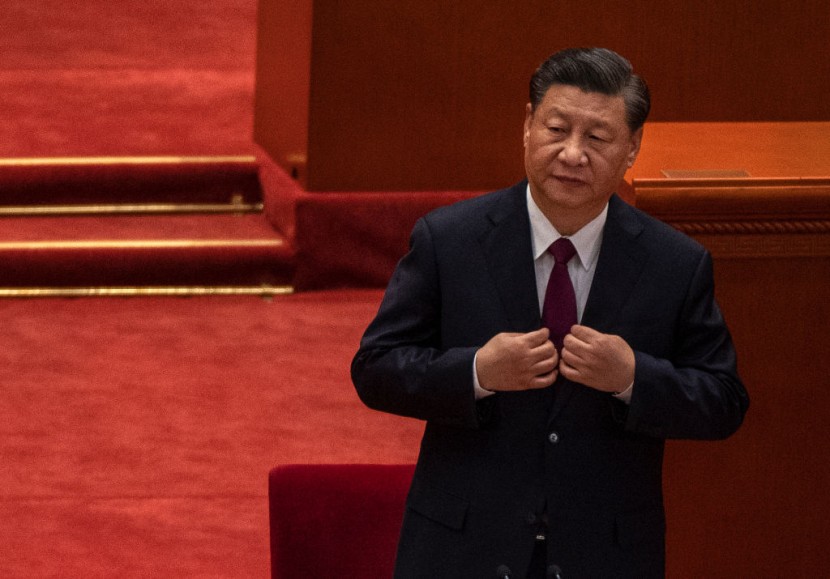
As severe regular lockdowns stoke public anger and strike a crippling hit to the Chinese economy, China's top leader Xi Jinping has issued the toughest warning yet against anybody who criticizes the country's zero-Covid policy.
The governing Communist Party's elite Politburo Standing Committee committed to unwaveringly stick to the overall policy of 'dynamic zero-Covid,' and fiercely battle any statements and behaviors that distort, question, or contradict our country's epidemic prevention measures at a meeting chaired by Xi on Thursday.
Xi Jin Ping Conducts "Important Speech" on Zero COVID-19 Policy
This is the first time since the public outcry over Shanghai's draconian lockdown that Xi, who gave an important address during the summit, has made public statements regarding China's fight against COVID-19.
The severe warning, according to specialists who have followed Chinese politics for a long time, indicates that there has been internal opposition to Xi's ZERO-COVID-19 policy inside the party.
Many Shanghai residents have gone to social media in the last five weeks to ask for aid and vent their frustrations about acute food shortages and lack of access to medical treatment. Some people screamed and banged pots and pans from their windows, while others fought with police and health workers in the streets, an unusual sight in a nation where dissent is often stifled.
Economists and business leaders are concerned about the severe economic consequences, especially considering Shanghai's importance as the country's premier financial center and a key manufacturing and shipping hub. China's services sector, which accounts for more than half of the country's GDP and more than 40% of employment, shrank at the second-fastest pace on record in April, while the industrial sector also shrank.
As Omicron spreads across China, more local governments are ordering emergency lockdowns in reaction to a few isolated incidents. Many in Beijing fear a Shanghai-style lockdown as officials impose tighter restrictions after more than 500 incidents were recorded since April 20, CNN reported.
Beijing officials have halted public transportation lines, advised residents to work from home, and ordered mass testing to prevent the city from experiencing the same fate. As most of the globe has come to live with the virus, China is one of the only countries that has maintained a variation of the ZERO-COVID-19 policy.
While the approach helped China keep its caseload low early in the pandemic, it has proven ineffective against the highly transmissible but less lethal Omicron variety. COVID-19 infections were still at a high level, and the virus was still evolving, according to the statement, implying grave uncertainty about how the pandemic would unfold.
China Keeps on Censoring Citizens' Dissatisfaction
Although China's senior leadership has stated repeatedly that it would continue to pursue its dynamic ZERO-COVID-19 policy, which aims to eradicate infections wherever they occur, the meeting on Thursday was the first to address the Shanghai pandemic.
In the run-up to the party congress later this year, where Xi is anticipated to win a historic third term, China's authorities are also desperate to keep COVID-19 at bay. Inhabitants in Shanghai, meanwhile, have complained of food shortages, difficulty obtaining medical treatment, and gates being erected outside residential buildings to prevent residents from fleeing.
Since March, about 600,000 individuals in the city have tested positive, and nearly 19 million people were still under lockdown on Thursday. Cases have started to tumble after being forced to stay at home for more than a month, as per South China Morning Post.
The focus on Shanghai and Beijing in the press obscures the scope of China's ZERO-COVID-19 policy, which has already impacted other major cities around the country since last year. Some inhabitants in Zhengzhou, central China, have already been partially evacuated; the rest are panic-shopping in supermarkets, sights that are unlikely to influence the atmosphere inside Zhongnanhai.
There is now no end in sight for China's once-successful tactic of retaliating against US claims of human rights violations. The CCP designated 2022 as a year of stability in December. Xi and his advisers will have to assess the balance of social and economic stability against any possible panic caused by the virus's spread.
Meanwhile, discontent is still prohibited on social media. Without social mobilization, or even the ability to think about it, the Chinese public's frustrations would likely remain isolated among tiny towns housing thousands, rather than spreading across cities housing millions, which appears to be the only option to alter minds in Beijing, according to Newsweek via MSN.
Related Article : Xi Jinping Stays Firm On Zero-COVID Policy, Warns Critics Amid Residents' Cry For Help
@YouTube
© 2025 HNGN, All rights reserved. Do not reproduce without permission.








